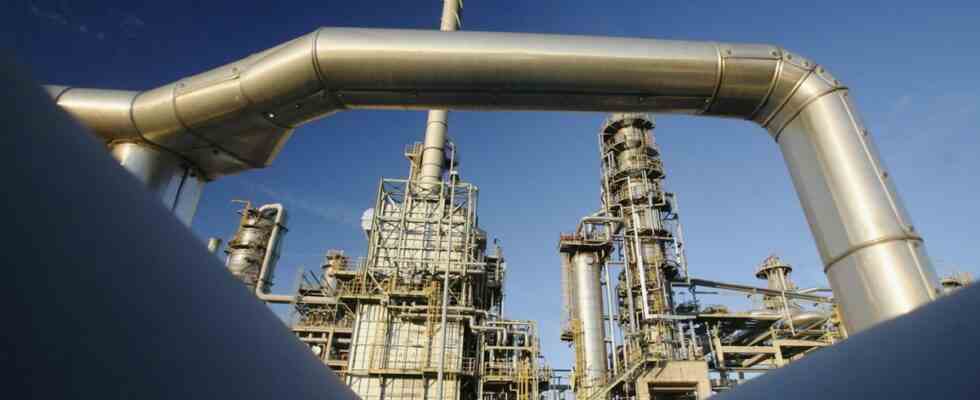Her name is “Druschba”, which is Russian for friendship: For almost 60 years, a pipeline has been transporting oil from Russia via Belarus and Poland to eastern Germany – to the large refineries in Schwedt an der Oder and later Leuna in Saxony-Anhalt, which produce petrol and produce diesel, heating oil or kerosene. The “Druschba” is a legacy from the time of socialist brother countries – and still important for gas stations, heating systems and airports in the east.
But after Russia’s attack on Ukraine, many oil companies are trying to become less dependent on Russian raw materials – although Germany has not yet imposed an official embargo on oil from Russia. For the first time, one of these efforts is hitting the “Druzhba”. It is, so to speak, the end of a friendship.
The French group Total has announced that it will stop buying crude oil and products such as diesel from Russia “as soon as possible”. Total is not only the third largest gas station operator in Germany, but also the owner of the refinery in Leuna. So far, it has been predominantly attached to the “Druschba”. But that should be over by the end of this year at the latest: that’s when the last supply contracts with Russia will expire, tells Total. No new ones should be added, existing ones would not be extended.
Sign pointing to the “Druschba” in southern Russia: the pipeline leads west in several strands, one of which ends in eastern Germany.
(Photo: Reuters)
The group emphasizes that it acts “in close cooperation with the German government”. In the past few days and weeks, Total has been criticized for being an accomplice to Russia’s war crimes with the oil deals. The French don’t want to put up with that any longer.
However, Total’s about-face raises unexpected questions about the fuel supply in Saxony, Saxony-Anhalt and Thuringia. As a rule, tankers transport fuel from the refineries to the gas stations in the respective region. So far, it has not made economic or ecological sense to cart ordinary premium petrol over long distances within Germany. This usually only happens for so-called premium fuels such as “Ultimate” from the market leader Aral.
Total is planning a way out via Poland – but it has one major disadvantage
Total wants to supply the plant in Leuna – after all, one of the five largest refineries in Germany – with more crude oil from the Polish port of Gdansk. In principle, tankers from all over the world can land there; the oil then also reaches East Germany by pipeline. However, the switch to other types of oil is difficult, at least in the short term, according to the Fuels and Energy Industry Association (en2x). And the route via Gdansk only offers about half the capacity of the “Druschba”.
Total therefore announces that, for example, more diesel will be “imported from other continents” in the future, and refers to participation in a refinery in Saudi Arabia. On Wednesday, the company initially did not want to comment on what this in turn means for the utilization in Leuna and the approximately 660 employees there.
High fuel prices in Berlin: Total is Germany’s third largest gas station operator after Aral and Shell.
(Photo: Carsten Koall/dpa)
In addition to Total, Shell and the Aral parent company BP also operate refineries in Germany, which are supplied with oil via North Sea ports such as Rotterdam. Both companies can benefit from significantly higher fuel prices this year because they operate their own drilling platforms internationally – and thus serve the entire value chain right through to the gas station.
After Total, the refinery in Schwedt would remain the last major customer of “Druschba” oil. It supplies large parts of Berlin and Brandenburg with fuel. Your operator PCK has not yet announced an embargo on oil from Russia. However, the ownership structure is also completely different: PCK is majority owned by the Russian Rosneft group – and this group wants to further increase its stake to almost 92 percent. This friendship seems to be intact for the time being.

